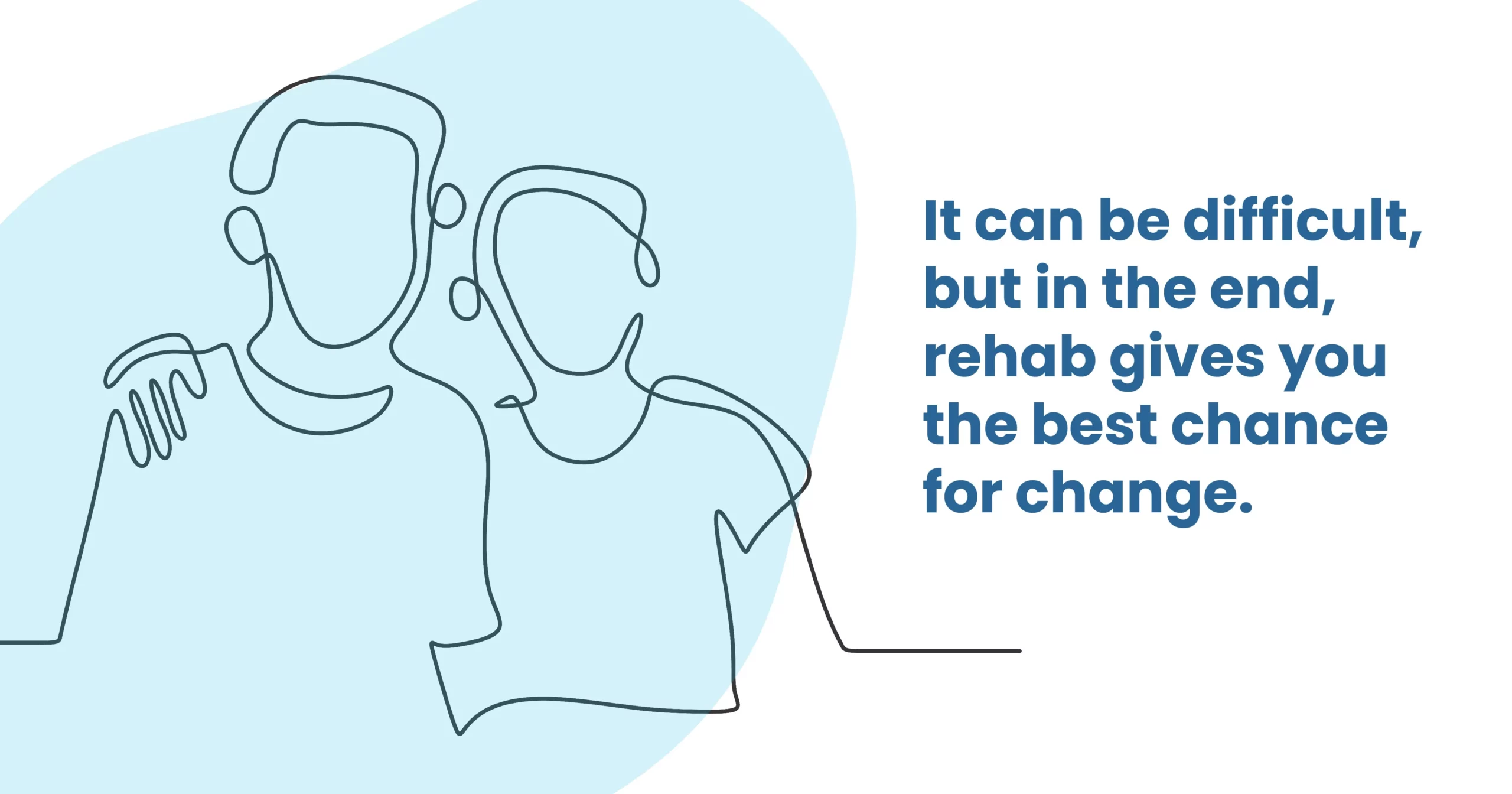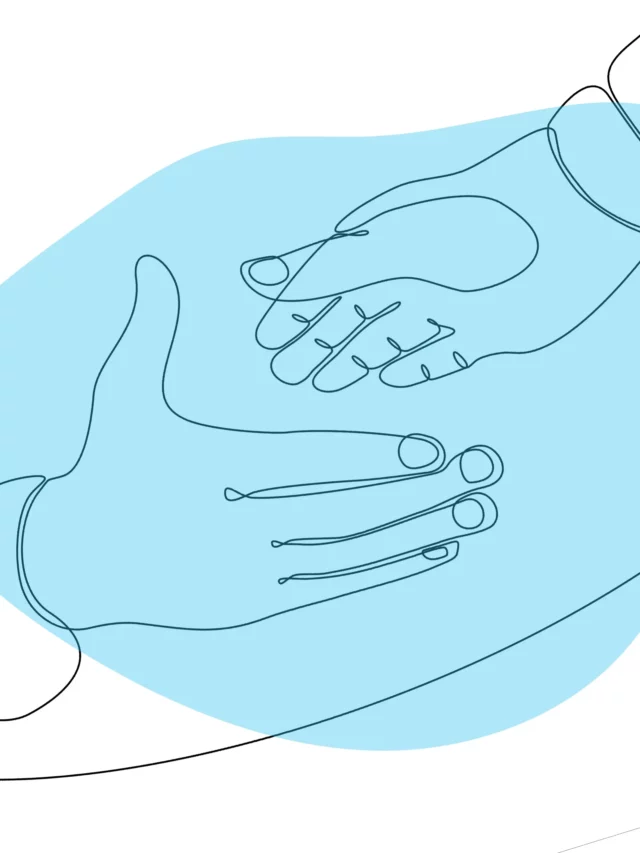When a friend or a family member’s substance abuse problem turns into addiction, you may consider getting them professional help.
Professional help can take many forms, but drug rehab is the most effective way for a struggling loved one to recover from drug or alcohol addiction.
While it may take time and effort to convince an addict to enroll in the treatment program, don’t wait until they hit rock bottom before seeking help. Talking to an addict about rehab can be difficult, and you will most likely face barriers as they resist help.
This post will discuss the effective ways to get someone with addiction into rehab.
Key Takeaways
The following steps can help you figure out how to get someone into rehab, particularly if that individual is reluctant to the idea. It can be difficult, but in the end, this gives you the best chance of making them change their behavior and get into rehab.
- Learn about every aspect of addiction, such as how it works, how it impacts, and the best treatment options.
- Establish healthy boundaries and make the consequences clear.
- Avoid blame, shame, and judgment.
- Consider involuntary commitment if they refuse to go to rehab.
- Stage an intervention with the help of family members and close friends of the addicted person.
If your loved one accepts that they have a problem and want to go to rehab, the Haven Detox-South Florida is the best rehab center for you. Contact us today at (561) 328–8627!
Why Some Addicts Don’t Seek Treatment
Addiction to alcohol and drugs is a major issue in the United States. In the past year, 40.3 million individuals in the US had a substance use disorder (SUD) – 19.4 million had an illicit drug use disorder, and 28.3 million had an alcohol use disorder (AUD). These statistics are both problematic and tragic.
There are many reasons why an addict refuses or is unable to go to rehab. Cost is undoubtedly a factor since more than 37% of those with addiction do not have health insurance or the financial means to pay for treatment.
Some people are also concerned about losing their job if their knowledge of their addiction problem becomes public.
At times, barriers to going to rehab are related to beliefs or attitudes. There is still a social stigma about drug and alcohol addiction that stops some people from getting treatment.
Furthermore, nearly a quarter of people with drug addiction problems admit they are not ready to stop.
How to Help
It is painful to see someone you care about suffer from drug or alcohol addiction. So, how can you get someone to rehab when they don’t want to go themselves?
To assist your loved one in enrolling in a drug rehab program, you must take some actions to streamline the process and make it easy.
Here are some useful ways to get someone into treatment, whether they want to go or not.
Learn About Addiction
Before recommending rehab to someone, make sure you’ve educated yourself about addiction and its treatment options. Only follow the advice of addiction specialists, survivors, and people with extensive experience with addiction.
Read anything you can get your hands on and attend support groups for family members affected by addicted loved ones. Seeking professional help for both you and your loved one is the best way to stay understanding and level-headed.
Addiction already has control over your loved one; don’t let it start controlling you.
Take a break from the situation and conduct some research about addiction.
Recognize the Signs of Addiction
Many people who are addicted to alcohol or drugs refuse to go to rehab due to anxiety or shame. As a result, when you try to help someone get treatment, they may refuse to accept that they have a problem.
That’s why it is essential to learn about the symptoms of alcohol and addiction. Like any other disease, addiction can cause both mental and physical symptoms.
The most common mental symptoms of addiction include the following:
- Loss of interest in once-enjoyed activities and hobbies.
- Changes in sleeping and eating patterns.
- Irritability.
- Paranoia.
- Mood swings.
- Anxiety.
- Loss of motivation.
The most common physical symptoms of addiction include the following:
- Slurred speech.
- Trouble walking.
- Change in pupil size.
- Sudden weight change.
- Shaking.
- Decline in personal hygiene.
- Sniffling.
Stage an Intervention
If your loved one refuses to enroll in an addiction treatment program, you should plan an intervention. Staging an intervention can be the best course of action to convince someone to go to a treatment facility.
An intervention is a planned conversation in which family members and close friends of an addicted person explain why the person should seek treatment.
The conversation should focus on particular concerns brought on by your loved one’s drug and alcohol abuse. It should also include a clear treatment plan as well as the consequences if your loved one does not adhere to the plan.
You may want to use the services of a professional interventionist to ensure the intervention goes well. They may assist you in planning a productive conversation and managing any conflicts resulting from it.
Avoid Negative Emotions and Attitudes
Approach the intervention with compassion and patience. As much as the addiction of your loved one has hurt you and as upset as you may be at this moment, it is important that you leave that out of the intervention. These negative emotions will not motivate them to change.
Let your loved one know that the intervention is coming from a place of love. You want them to go to a treatment center so they can be healthy and happy again. You want to ensure their safety. Let them know that you are with them no matter what.
Make sure to listen to them as much as you speak. For the intervention to be productive, your loved one must feel heard and seen.

Set Healthy Boundaries
It is not easy to convince someone to go to a rehabilitation facility.
Setting healthy boundaries allows you to keep your sense of self while dealing with an addicted person. The limitations you set will ease any stress brought on by their addiction. These boundaries will also provide you with feelings of security and safety.
Remember that establishing boundaries is important. Remind yourself of how devoted and willing you are to compromise for your loved one. Make your intentions clear so that you do not lose yourself or your freedom.
Setting clear boundaries will also help an addict see the consequences of their actions. When you don’t tolerate their certain behaviors, they are more likely to see the consequences.
Get help from medical professionals if necessary. Speaking with a therapist might help you express your thoughts and feelings. You can also have a chat with friends or family members who are in the same situation as you.
Consider Involuntary Commitment
If your loved one continues to refuse to go to rehab and is a threat to themselves or others, they may need involuntary commitment.
Involuntary commitment laws differ from state to state. However, in many cases, you can involuntarily commit someone you care about to enter rehab if you can prove that they have a drug or alcohol addiction and that they would hurt others or themselves if they do not receive treatment.
Similarly, if the addiction of your loved one has led them to engage in criminal activity and you report it, they may receive court-ordered rehab. This sort of involuntary treatment is regarded as an alternative to imprisonment.
In Florida, the law used to commit someone to drug rehab involuntarily is called the Marchman Act.
The Marchman Act allows for voluntary admissions as well as involuntary assessment, stabilization, and treatment of teenagers and adults who are seriously hurt by substance abuse.
According to the National Institute on Drug Abuse (NIDA), those who get forced treatment are just as likely as people who seek treatment on their own to achieve long-term recovery.
Frequently Asked Questions (FAQs)
Can you make a family member go to rehab?
It can be tough to convince someone to go to treatment. However, in many cases, it is possible. You can help your loved one by approaching the subject compassionately and carefully. Here’s how:
Learn about addiction.
Research treatment options.
Plan an intervention.
Avoid negative emotions and attitudes.
Consider a professional intervention.
Avoid judgment.
Offer support.
Don’t wait until it gets worse.
What’s the shortest time you can stay in rehab?
A 30-day recovery program is usually the shortest length of stay available in rehab facilities. While 30 days may not appear to be enough time to recover from an addiction, it can be highly beneficial. It provides people addicted to drugs and alcohol discipline and support as they detox and learn how to live a life of sobriety.
What is the success rate of people who go to rehab?
According to the data:
88.64% of patients who complete the treatment program stay alcohol-free after one month.
85-95% of people who complete the treatment program are drug-free nine months after rehab.
Around 80% of patients believe their quality of life and health improved after drug rehab.
It is calculated that one in every three individuals who finish an alcohol or drug treatment program will stay sober. Relapse rates reduce as a person progresses through their treatment programs.
Can you force someone into rehab for alcohol?
Yes, there are ways you can force someone into rehab for alcohol.One way to force someone into rehab is through drug courts, which remove nonviolent criminals with an alcohol use disorder (AUD) from prison and instead admit them to treatment programs under medical supervision, where the focus is treatment rather than punishment.
However, to be eligible for drug court, a person must have been arrested, pled guilty to the alleged offense, and consented to the court-ordered treatment program.
Involuntary commitment is another way for families and friends desperate to get treatment for a loved one suffering from alcohol use disorder (AUD).
Free Yourself from Addiction with Haven Detox-South Florida
Addiction is a chronic, treatable condition that can be fatal if left untreated. If you suspect a loved one has an alcohol or drug use disorder, don’t let the fear of meddling keep you from having an open conversation with that person. Your actions have the potential to save their life.
If you need professional guidance, please do not hesitate to contact The Haven Detox. It might be difficult, but we are always here to help you.
At Haven Detox-South Florida, we treat all sorts of addiction, including alcoholism, benzo addiction, opioid addiction, meth addiction, heroin addiction, cocaine addiction, methadone addiction, and many others.
Our team of medical professionals offers a range of effective treatment services, such as medically-supervised detox, residential treatment, and therapies.
To learn more about our addiction treatment services, contact us today at (561) 328–8627!
